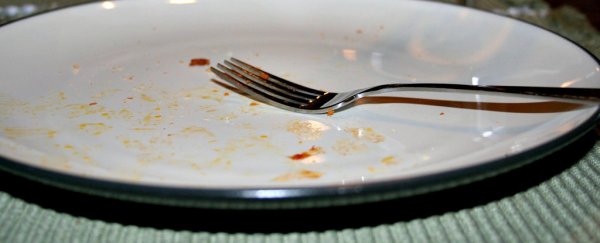New research has shown that a diet involving periods of fasting could help fight autoimmune conditions - which are a range of disorders, such as lupus and multiple sclerosis, that occur when a patient's immune system starts attacking its own body.
The initial study was performed in mice, but a small, follow-up trial in humans showed that the calorie-restricted diet was also able to help reverse the symptoms of multiple sclerosis. The team is so excited they're now quickly moving into larger clinical trials.
"During the fasting-mimicking diet, cortisone is produced and that initiates a killing of autoimmune cells," said lead researcher Valter Longo from the University of South California. "This process also leads to the production of new healthy cells."
So what exactly is a fasting diet? Eating plans such as 5:2 or intermittent fasting have been growing in popularity lately, but the fast-mimicking diet developed by Longo and his team basically works by cutting calorie-consumption in half for three days out of seven.
And now in both mice and humans, they've shown early evidence this pattern could help reverse some of the damage of autoimmune conditions.
The team had already done quite a lot of work on fasting, with their earlier research showing that calorie-restriction diets could not only cut fat, but also reduce markers of ageing and disease in humans.
"We started thinking: If it kills a lot of immune cells and turns on the stem cells, is it possible that maybe it will kill the bad ones and then generate new good ones?" said Longo.
To test this out, the team first took a group of mice with autoimmune disease and put them on a fasting-mimicking diet for three weeks, which meant they fasted for a total of nine days over the 21-day period.
Compared to a control group, the mice on the fasting diet had reduced disease symptoms by the end of the study, and the eating plan had "caused complete recovery for 20 percent of the animals," the researchers write in Cell Reports.
"On the one hand, this fasting-mimicking diet kills bad immune cells," said Longo. "Then, after the mice return to the normal diet, the good immune cells but also the myelin-producing cells are generated, allowing a percentage of mice to reach a disease-free state."
To follow-up in humans, the team took 60 people with multiple sclerosis - which is thought to be caused when the immune system attacks the coating of nerve cells - and put them either on: a fast-mimicking diet for a week, followed by six months of a Mediterranean diet; six months of a high-fat diet; or six months of a normal diet.
The patients that fasted and then went on the Mediterranean diet reported improvements in their quality of life, physical, and mental health compared to the control group, and found the eating plan safe.
Combined with the mouse data, that's pretty promising stuff, but the important thing to realise now is that this is all in the super early stages, and no one should be trying this at home as a DIY treatment just yet.
For starters, the human trial was incredibly small, and we don't know for sure whether the patients would have experienced the same benefits if they'd just gone on the Mediterranean diet without fasting first. Positive results were also reported by the high-fat diet group, which means there's likely to be more going on here.
The team also hasn't been able to show exactly how the calorie-restricted diets led to the positive health effects, which they'll need to do if this eating plan is to be used as a treatment for the disease.
But they're so excited by the potential that they're rushing into larger clinical trials, and are calling on other institutions to follow up on their results so that they can figure out what's going on as quickly as possible.
"We are optimistic," said Longo. "What we don't want is patients trying to do this at home without involvement of their specialist or without understanding that larger trials are necessary to confirm that the diet, as a treatment, is effective against multiple sclerosis or other autoimmunities."
Watch this space for updates.
